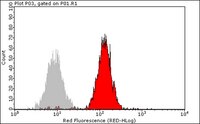Enhancement of Ischemic Wound Healing by Spheroid Grafting of Human Adipose-Derived Stem Cells Treated with Low-Level Light Irradiation.
Park, IS; Chung, PS; Ahn, JC
PloS one
10
e0122776
2015
Show Abstract
We investigated whether low-level light irradiation prior to transplantation of adipose-derived stromal cell (ASC) spheroids in an animal skin wound model stimulated angiogenesis and tissue regeneration to improve functional recovery of skin tissue. The spheroid, composed of hASCs, was irradiated with low-level light and expressed angiogenic factors, including vascular endothelial growth factor (VEGF), basic fibroblast growth factor (FGF), and hepatocyte growth factor (HGF). Immunochemical staining analysis revealed that the spheroid of the hASCs was CD31+, KDR+, and CD34+. On the other hand, monolayer-cultured hASCs were negative for these markers. PBS, human adipose tissue-derived stromal cells, and the ASC spheroid were transplanted into a wound bed in athymic mice to evaluate the therapeutic effects of the ASC spheroid in vivo. The ASC spheroid transplanted into the wound bed differentiated into endothelial cells and remained differentiated. The density of vascular formations increased as a result of the angiogenic factors released by the wound bed and enhanced tissue regeneration at the lesion site. These results indicate that the transplantation of the ASC spheroid significantly improved functional recovery relative to both ASC transplantation and PBS treatment. These findings suggest that transplantation of an ASC spheroid treated with low-level light may be an effective form of stem cell therapy for treatment of a wound bed. | 26065900
 |
















